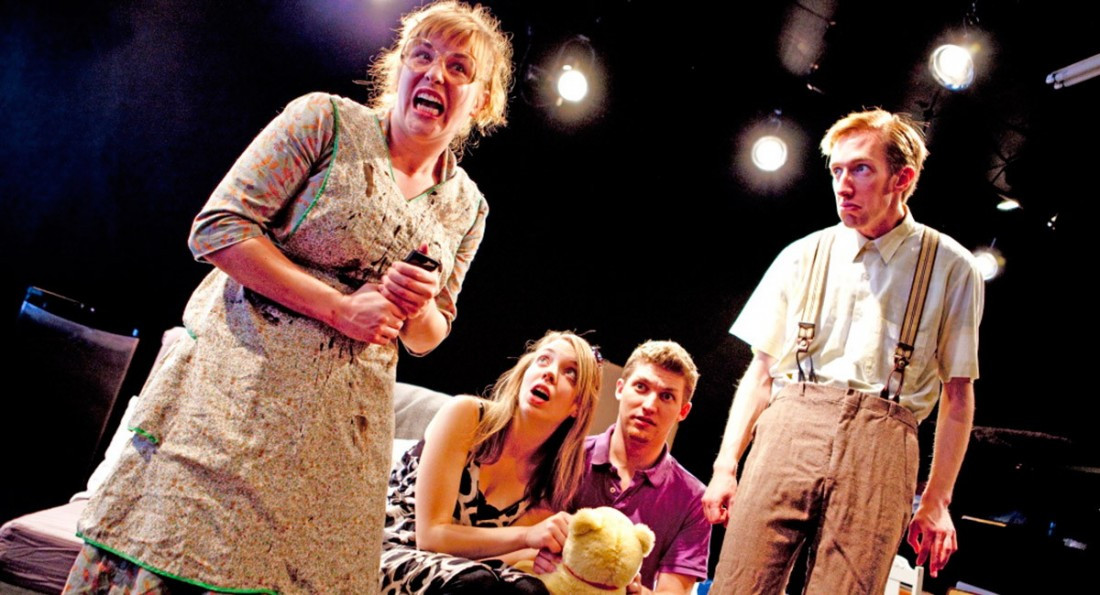Women, without exception
Inclusivity is the name of the game at FemFest
Brittany Thiessen’s not a ditz, but she does play one in the upcoming FemFest production of Harold and Vivian Entertain Guests, a new play by Winnipeg writer Jessy Ardern.
With blonde hair and blue eyes, Thiessen acknowledges that her appearance has often landed her stereotypical female roles.
“Not everyone is Barbie and Ken,” Thiessen says, noting that many of the theatre roles for women are an oversimplification of the female sex.
However, Thiessen senses a larger, more female-inclusive trend gaining momentum in the Winnipeg theatre scene.
“The younger generations want new plays and they want plays written by them which means representation from women and homosexuals,” she says. “FemFest is embedded in this awareness.”
Since 2003, FemFest has been presented by transformative theatre company Sarasvàti Productions, and this year marks the second time Thiessen has acted in the annual festival but the first time she has contributed her own piece of theatre. In addition to playing Janet, the “dumb blonde” in Harold, Thiessen and fellow playwrights Devan Gingrich and Megan Sekiya are debuting their own creation, Acquetoré: Swan Doll.
“The show is exploring our experience in acting school, what it means to be a good actor, what it means to be an experienced actor and what it means to be a bad actor,” Thiessen says. “A lot of its influences come from Kill Bill and samurai training.”
A recent graduate of the University of Winnipeg’s Acting Honours Program, Thiessen is very interested in examining the development and change that takes place over the course of an actor’s career.
“I don’t think an actor’s training is ever really over, just like a samurai’s training is never over,” she says.
Hope McIntyre, artistic director of Sarasvàti Productions, stresses the importance of the educational and opportunistic nature of FemFest. She makes sure that even those without blonde hair and blue eyes are afforded the same opportunities to share and develop their work.
“The festival has truly become a place where those who often are not heard, are given a voice,” McIntyre says. “We’d like to keep expanding this mandate by giving voice to more and more women from diverse backgrounds.”
Published in Volume 68, Number 1 of The Uniter (September 4, 2013)







